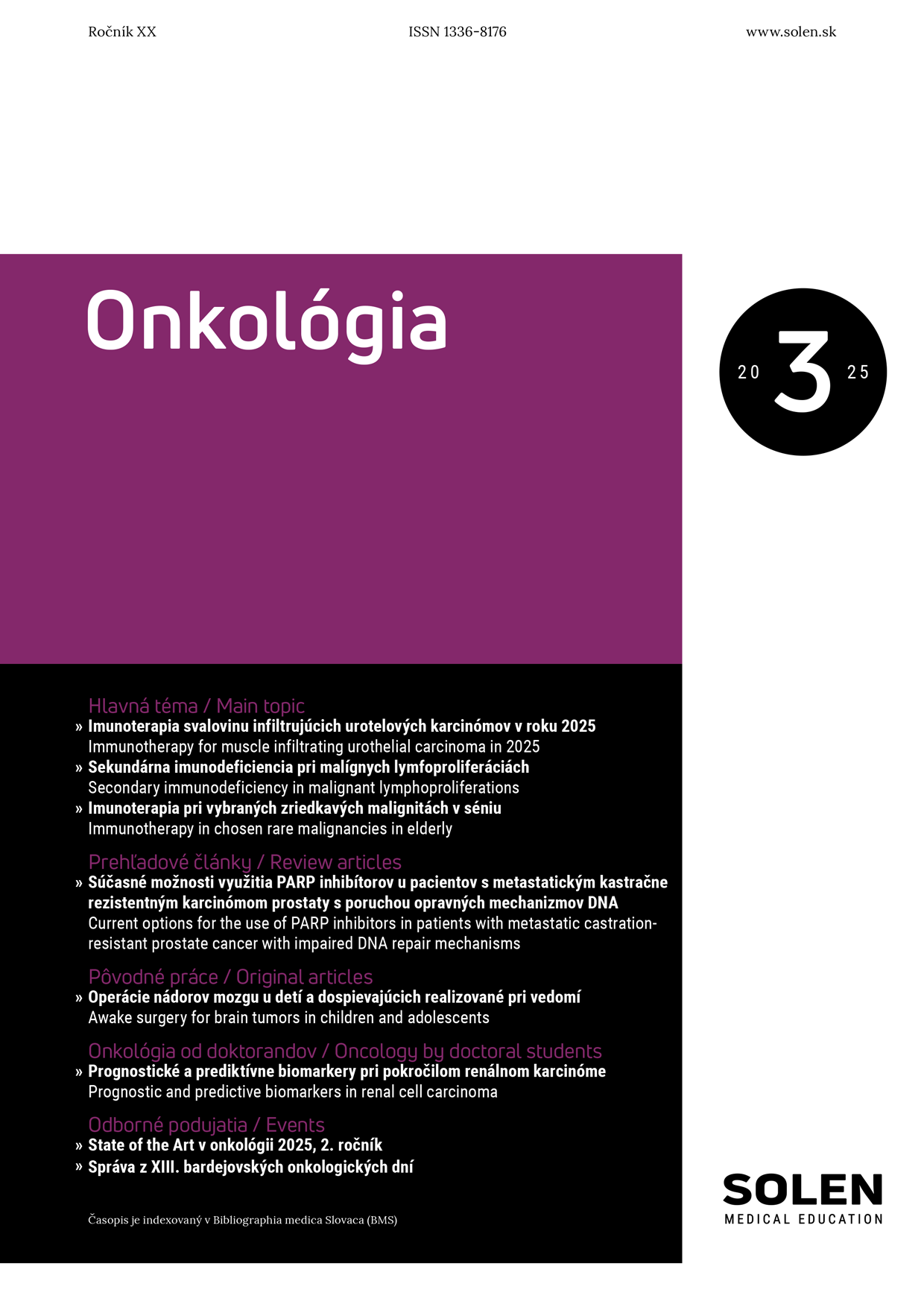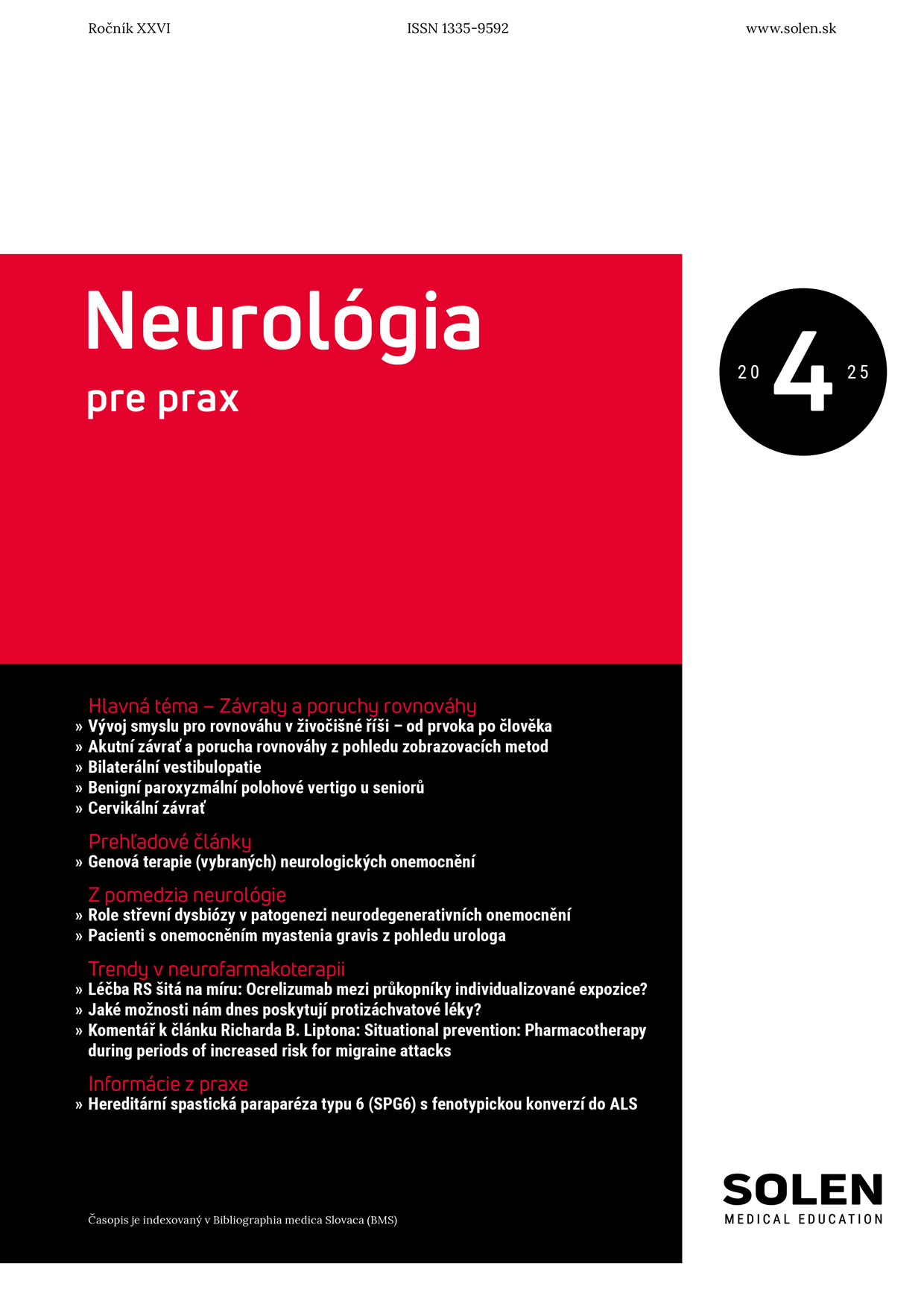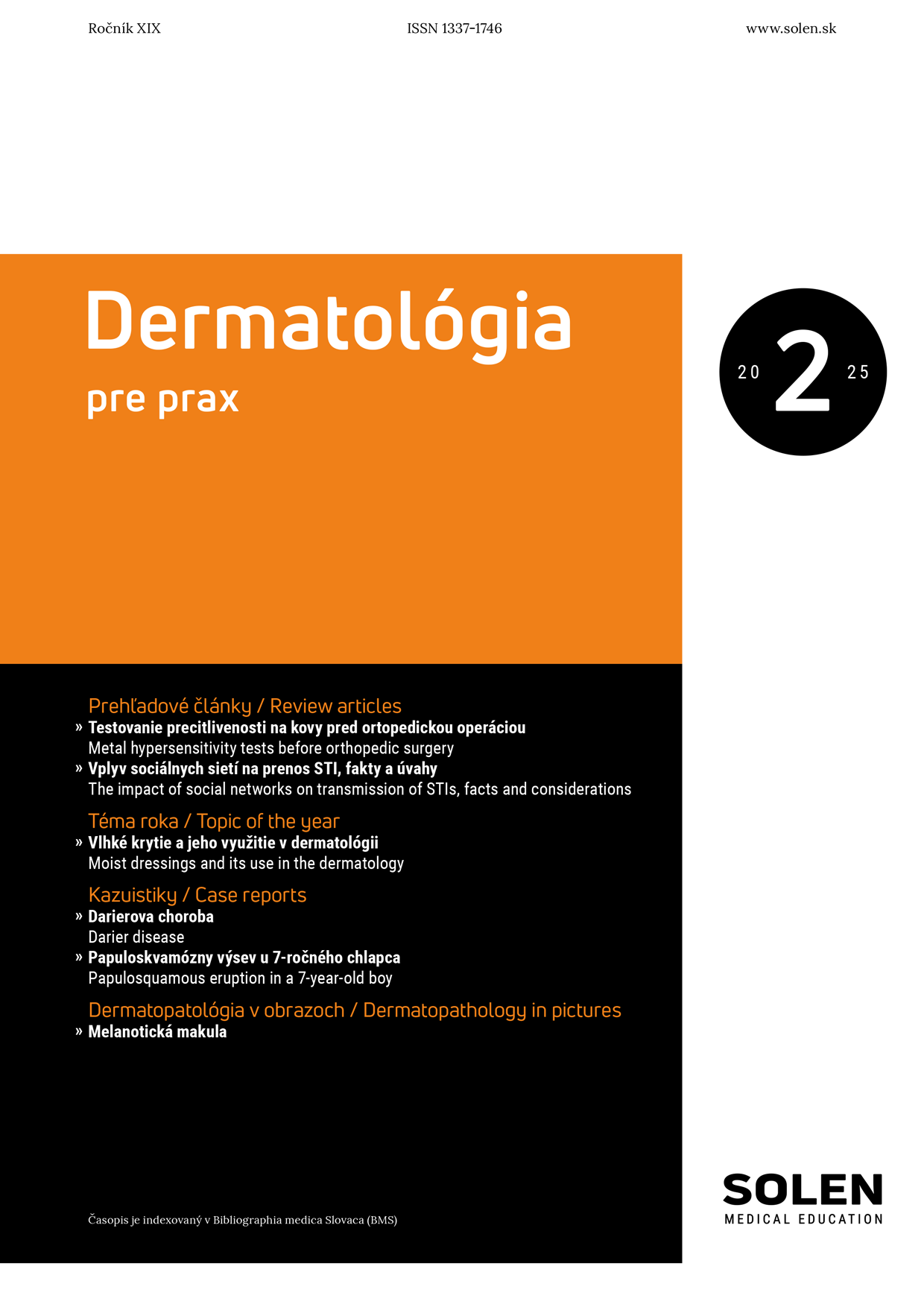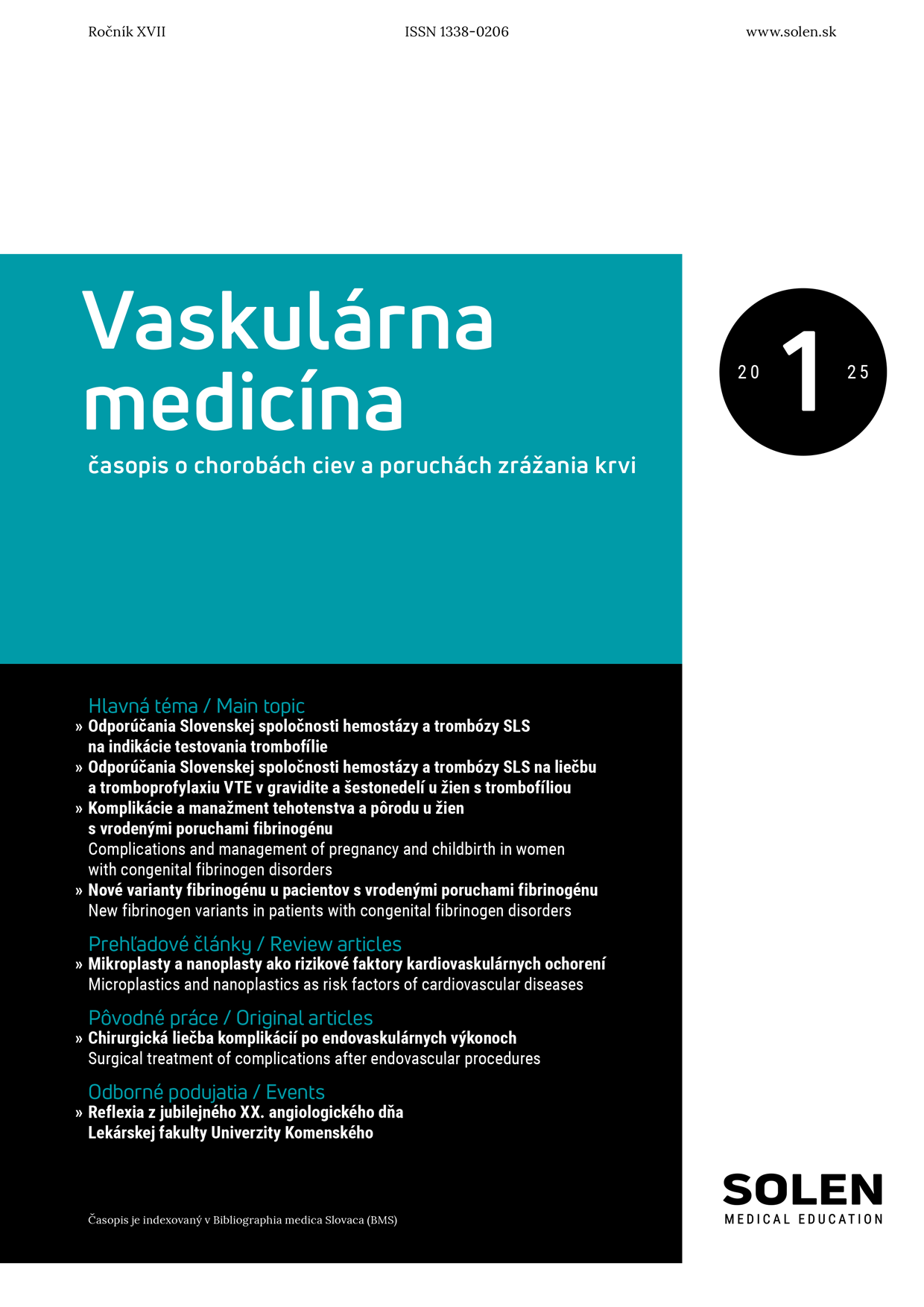Neurológia pre prax 4/2015
Treatment with interferon beta despite persistent elevation of liver enzymes
Interferon beta 1b (Betaferon) has been the longest used disease-modifying drug in multiple sclerosis. Its side effects include, among other things, elevated liver aminotransferases, which reflects hepatocellular injury. It is, however, unclear what exact changes in the liver parenchyma occur. Data are available only from liver biopsies of patients with fulminant hepatic failure, resulting from another underlying cause. Our case report presents a patient treated with Betaferon since 1999 who had developed elevation of liver enzymes with a gradual increase as early as the first year of treatment and, transiently, third-degree toxicity was reached. Given the long-term clinical and radiological stabilization and the patient's negative attitude to a possible treatment switch, the decision was made based on the liver biopsy results to continue the treatment with interferons despite persistently elevated liver enzyme levels.
Keywords: multiple sclerosis, interferon beta 1b, liver biopsy, elevated aminotransferases.

















